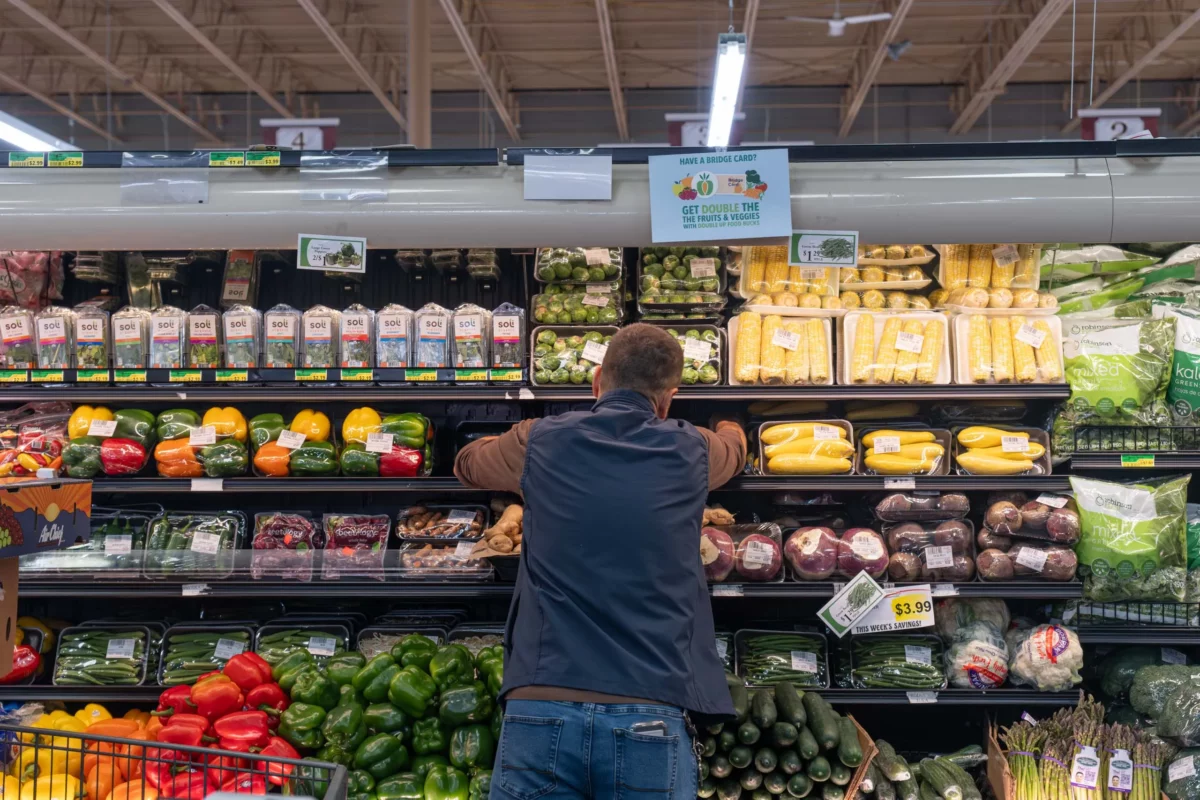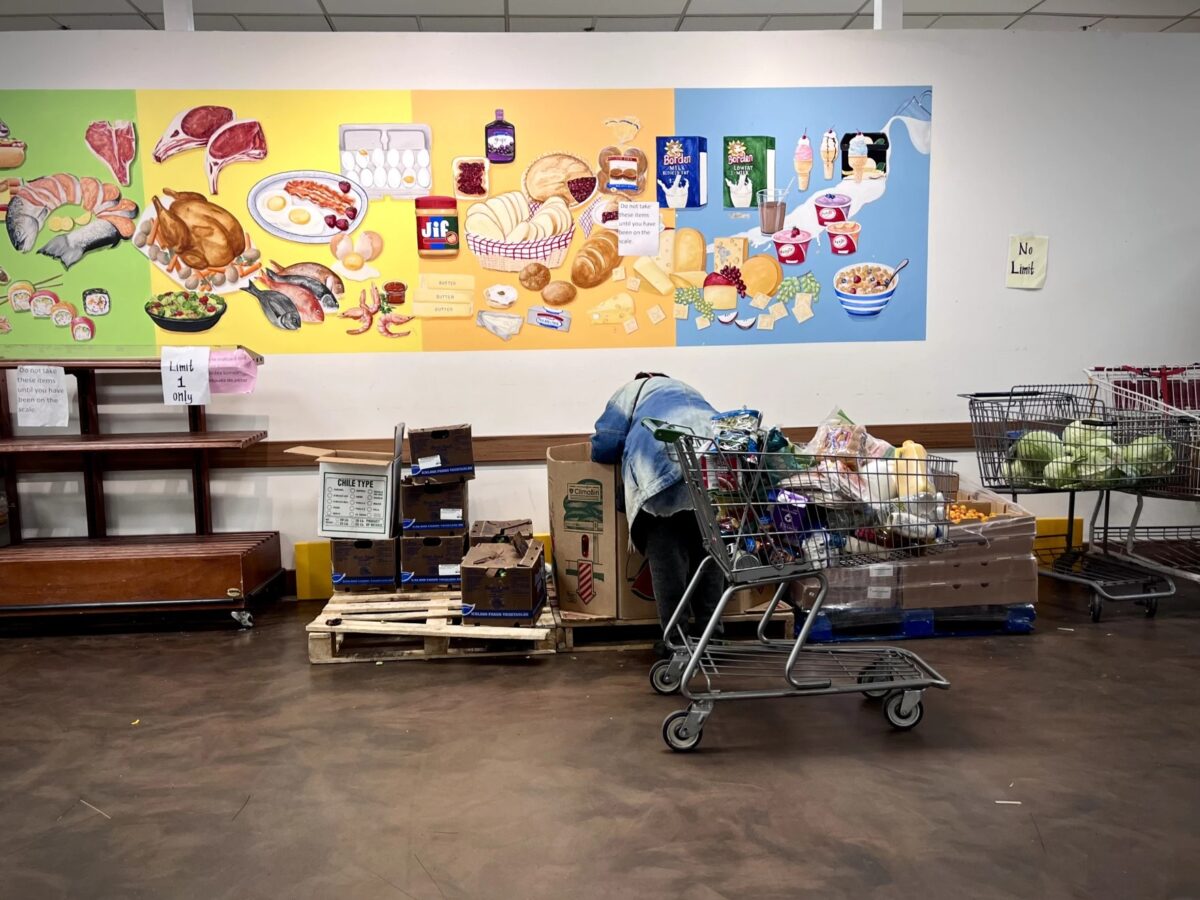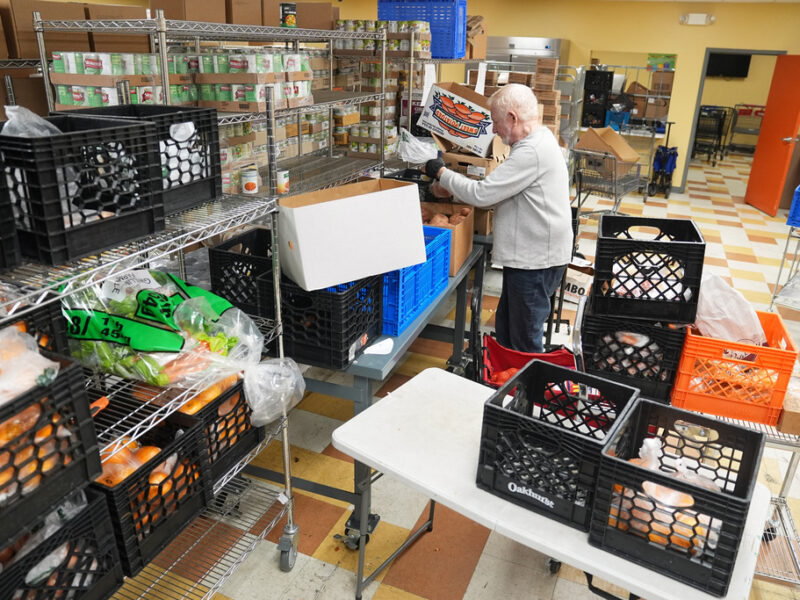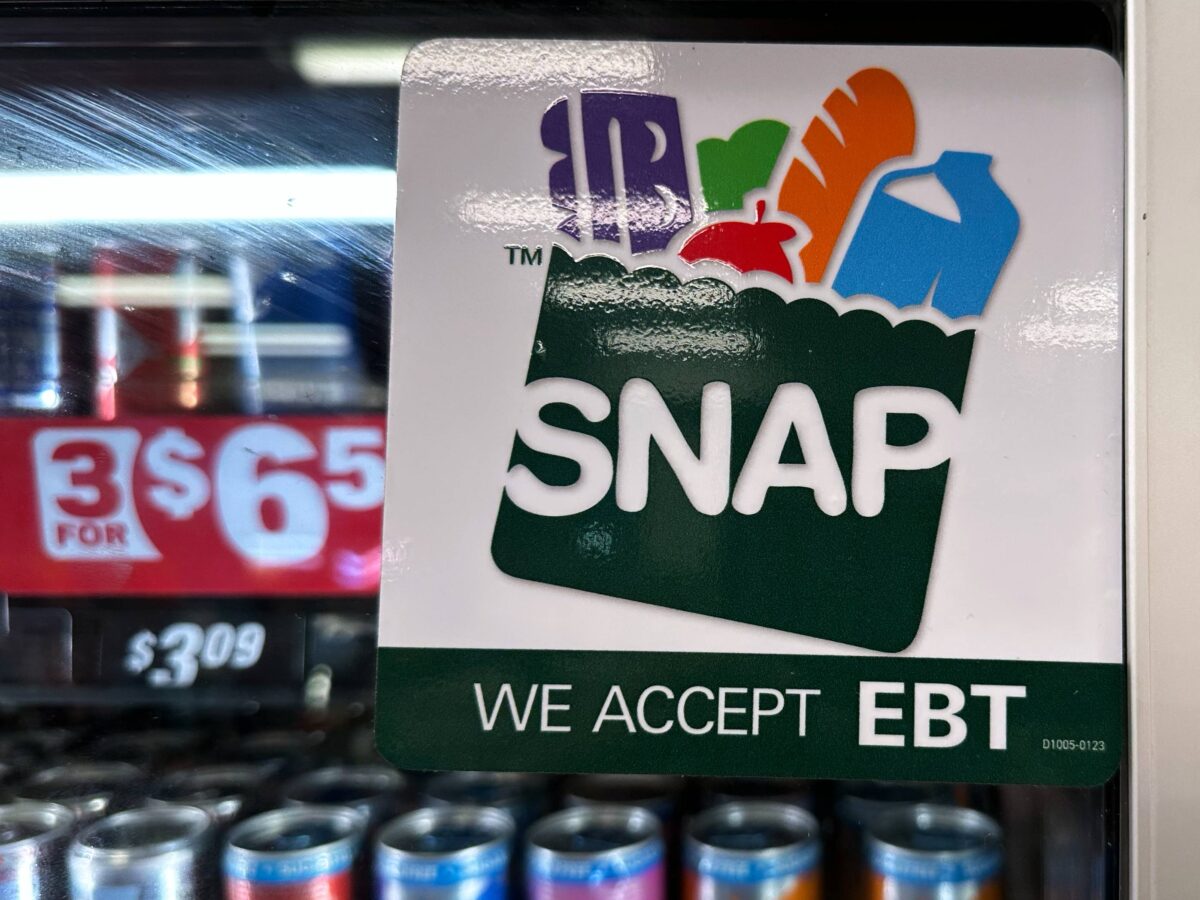Overview:
- SNAP sales at Detroit's Grace Food Market were down 53% month-over-month in the first week of November.
- The struggles of food-insecure Detroiters and their neighborhood grocery stores are deeply connected.
- If SNAP payments don’t arrive for another month or two, “we’re done,” says the grocery store's owner.
by KOBY LEVIN
Outlier Media
This story was originally published by Outlier Media.
Customers at Grace Food Market in Detroit are buying fewer groceries since the start of November — if they show up at all.
“They used to come in and get a basket, now they walk in and grab two or three necessities by hand,” owner Samer Khemmoro said.
Detroiters sharply cut their food spending in the first week of the month after funding for Supplemental Nutrition Assistance Program (SNAP), formerly known as food stamps, was reduced and delayed because of the Trump administration’s refusal to tap into emergency funds.
SNAP helps Grace Food Market customers put food on the table. The program is also a staple for the market itself. Like many grocers citywide, SNAP dollars account for more than half of its sales.
SNAP sales at Grace Food Market were down 53% in the first week of November compared to the previous month, a sign of rising anxiety and food insecurity after the Trump administration reduced and delayed SNAP payments. The supermarket’s overall sales declined 37%, according to financial information reviewed by Outlier Media.
The struggles of food-insecure Detroiters and their neighborhood grocery stores are deeply connected. In majority-Black communities shaped by decades of disinvestment, poverty is a fact of life. The ZIP code surrounding Khemmoro’s store is 89% Black with a poverty rate of 33% and a median household income of less than $43,000.
“We’re trying to find cheaper food, stuff on sale,” said Roger Henley, who was shopping in the neighborhood with his wife. “We go and get in line for food giveaways. You might not realize until they take it away, then you really feel it.”
Khemmoro is also feeling the strain.
If SNAP payments don’t arrive for another month or two, “we’re done,” he said. “Bills have to be paid.”
Most grocery stores in Detroit are independent — “mom and pop” operations with just one or two locations. In a city where plenty of food is available but not enough of it is healthy, grocers are a crucial access point to nutritious foods.
A hit to these stores “goes beyond just business — your nutrition pipelines are affected,” said Phil Jones, a chef who serves as community food specialist for the Detroit Food Policy Council.
Community roots

Vince Nona’s family has operated grocery stores on Jefferson Avenue for 40 years.
He figures the reserves he’s built up at Parkway Foods, which he co-owns with his father, will allow the business to weather this crisis. But he’s looking for ways to help customers, some of whom he’s known for decades.
“If someone can’t feed their family, (we say) ‘there’s a jar of peanut butter, there’s a loaf of bread,’” he said. “We’ve been here way too long to not help people out like that.”
Parkway is one of more than a dozen locations in Detroit offering $40 in coupons to help SNAP beneficiaries get through the holiday season. The coupons can be used to purchase fresh or frozen produce.
Despite Parkway’s reserves, Nona says he is closely watching the bottom line.
He’s skipped or reduced orders of perishable products, betting that they’ll go bad before anyone buys them. And fewer orders mean less to do for workers at the store.
Like Khemmoro, Nona is reducing some employees’ hours temporarily.
Their reduced paychecks, multiplied across dozens of stores and hundreds of independent grocery employees in Detroit, help explain why every dollar spent on SNAP generates $1.54 in economic activity during a slow economy.
On Monday, the federal government appeared poised to reopen, paving the way for SNAP funds to arrive. Khemmoro said business picked up over the weekend, but it’s too soon to tell whether the store will recoup its losses.
Last week, anticipating that his customers would cut back, Khemmoro canceled orders of meat and produce.
“Now we’re trying to put orders in and get back to normal,” he said.
MORE SNAP COVERAGE
Michigan restores full SNAP payments with shutdown, court battle ongoing
In a move impacting 1.4 million low-income Michiganders, the state health department has directed the payment of full SNAP benefits for November, with the funding source unclear.
Michigan SNAP benefits on hold again as Trump administration tries to reverse food payments
Over the weekend, the Trump administration demanded states reverse full benefits paid under the Supplemental Nutrition Assistance Program, or SNAP.
Supreme Court issues emergency order to block full SNAP food aid payments
BOSTON (AP) — The Supreme Court on Friday granted the Trump administration’s emergency appeal to temporarily block a court order to fully fund SNAP food aid payments amid the government shutdown, even though residents in some states already have received the funds. A judge had given the Republican administration until Friday to make the payments…





